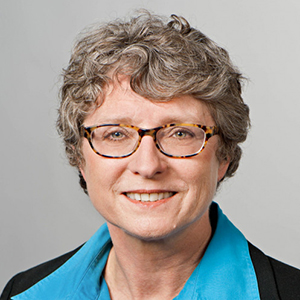
Prof. Bitsch conducts research in the fields of agricultural economics and agribusiness management. In her research, she prefers working with qualitative approaches, where she also contributes to methodological development and the doctoral certificate program Agricultural Economics on the national level in Germany.
Prof. Bitsch studied horticultural sciences at the Leibniz University of Hannover. For her doctorate, she analyzed performance ratios in horticulture. After her doctoral degree, she researched management skills, strategic management, and management of personnel, including job satisfaction and motivation at Leibniz University Hannover. Her research and book on qualitative research in applied economics made an essential contribution to the further development of the methodology discussed in this field. In 2000, Prof. Bitsch accepted a position as Assistant Professor at Michigan State University. In 2006, she was awarded tenure and promotion to Associate Professor there. Her roles involved research, teaching, and extension mainly in the area of human resource management in agriculture. Her extension and outreach program received a prestigious national award in the U.S.A. by the Agricultural & Applied Economics Association (AAEA) in 2008. Prof. Bitsch joined the Technical University of Munich (TUM) in 2010 as a full professor and ordinaria for the Chair of Economics of Horticulture and Landscaping.
Community Supported Agriculture (CSA, in German: Solidarische Landwirtschaft – SoLaWi) An exchange arrangement created in reaction to criticisms of conventional food systems, CSA takes various forms; depending on the economic, political and social environment in which CSA projects are embedded. The CSA movement in Germany – known as Solidarische Landwirtschaft (solidarity agriculture), or Solawi – is relatively young compared to other countries in the global north. A grounded theory approach is used to examine the development of CSA in Germany, the importance of and enactment of the concept of solidarity in individual Solawis as well as in the German Solawi network, and the potential of Solidarische Landwirtschaft to contribute to system-wide improvements in food system sustainability.
Preferences for sustainable apples in Germany and New Zealand The societal preference for regional food production and beliefs about low food miles lead to questions on consumers’ perceptions of sustainability versus the reality of carbon footprints. The project aims to investigate the importance of product attributes relevant to consumers when buying fresh, sustainable apples. The goal is to understand the trade-offs that New Zealand’s and German consumers make among product attributes when purchasing sustainable apples. Comparing both countries is particularly interesting, because some of the same companies are active in both countries and New Zealand apples fill seasonal gaps in the substantial German apple market, when German fruits are not available.
Vocational Education and Training (VET) in the landscaping sector
While apprenticeships in Germany, known as the dual system of traditional vocational education and training (VET), enjoy worldwide recognition, adaptations to current challenges are need if the system is to provide a professional workforce into the future. The global trend in VET systems indicates a movement towards modularized and unified approaches to the design of apprenticeships. This research explores the potential for improvements in the German landscaping VET based on perspectives on the current system obtained from a variety of different stakeholders.
“Multi-family consulting”: Implementation, monitoring, and evaluation of a group consulting approach to the process of farm succession in family agricultural businesses
The future of many family farms in Germany is insecure. The wide variety of issues related to family farm succession – personal, relational, legal, and structural issues – make advising during succession processes a complex task. To support farming families on their way to transferring the farm to the next generation, and to make it possible for consultants to reach several families at the same time, a group consulting approach, originally developed by Dr. Marianne Nobelmann, will be further developed, implemented and scientifically evaluated.